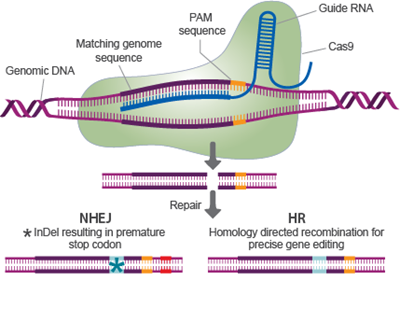CRISPR and a Hypoallergenic Peanut
Anyone with a child in school is probably aware of the need for peanut free zones. You get a notice when your child returns from school on the first day stating that at least one child in their class has a peanut allergy, which means nothing with peanuts gets sent to school for your child’s lunch. If you are a parent of a child with a peanut allergy you understand how important and serious this is – your child is literally one errant Snickers bar away from death.
...
There is, however, a potential solution. Researchers have been working for years on developing a cultivar of peanut that does not cause allergies. Attempts to achieve this through conventional breeding and hybridization have failed and does not seem likely to succeed. The only real hope of a hypoallergenic peanut is through genetic modification. We are, in fact, on the brink of achieving this goal, but anti-GMO fears are getting in the way.

In 2005 a study was published showing that it is possible to silence the gene for the Ara H2 protein, the primary allergenic protein in peanuts. A 2008 follow up by the same team showed decreased allergenicity of the altered peanut. So where are our hypoallergenic peanuts? This is a complicated question, and I don’t think I can give a full answer.
The delay in marketing a hypoallergenic peanut seems to be due partly to technical issues – it turns out to be a lot more difficult to make the necessary changes than at first thought. However, it also seems to be due to the anti-GMO campaign, which has been scaring away investors and making politicians gun-shy.
Meanwhile, scientists have developed a new technique that promises to revolutionize genetic engineering, called CRISPR - Clustered regularly interspaced short palindromic repeats. This is a system found in procaryotes as part of an adaptive immune system against viruses. The system can be used for relatively cheap and easy gene editing.
Chloe Gui, a scientist with Aranex Biotech, is working with CRISPR technology to identify and then edit out the genes for the major allergenic proteins in peanuts. CRISPR is more precise than older techniques and has the potential to succeed in the goal of an allergy-free peanut. Gui, however, complains that the investors the startup needs to complete their research is difficult to come by because “GMO” has become a bad word. Further, GMO regulations have not yet accounted for CRISPR technology, creating uncertainty in the market.
http://theness.com/neurologicablog/index.php/crispr-and-a-hypoallergenic-peanut/
